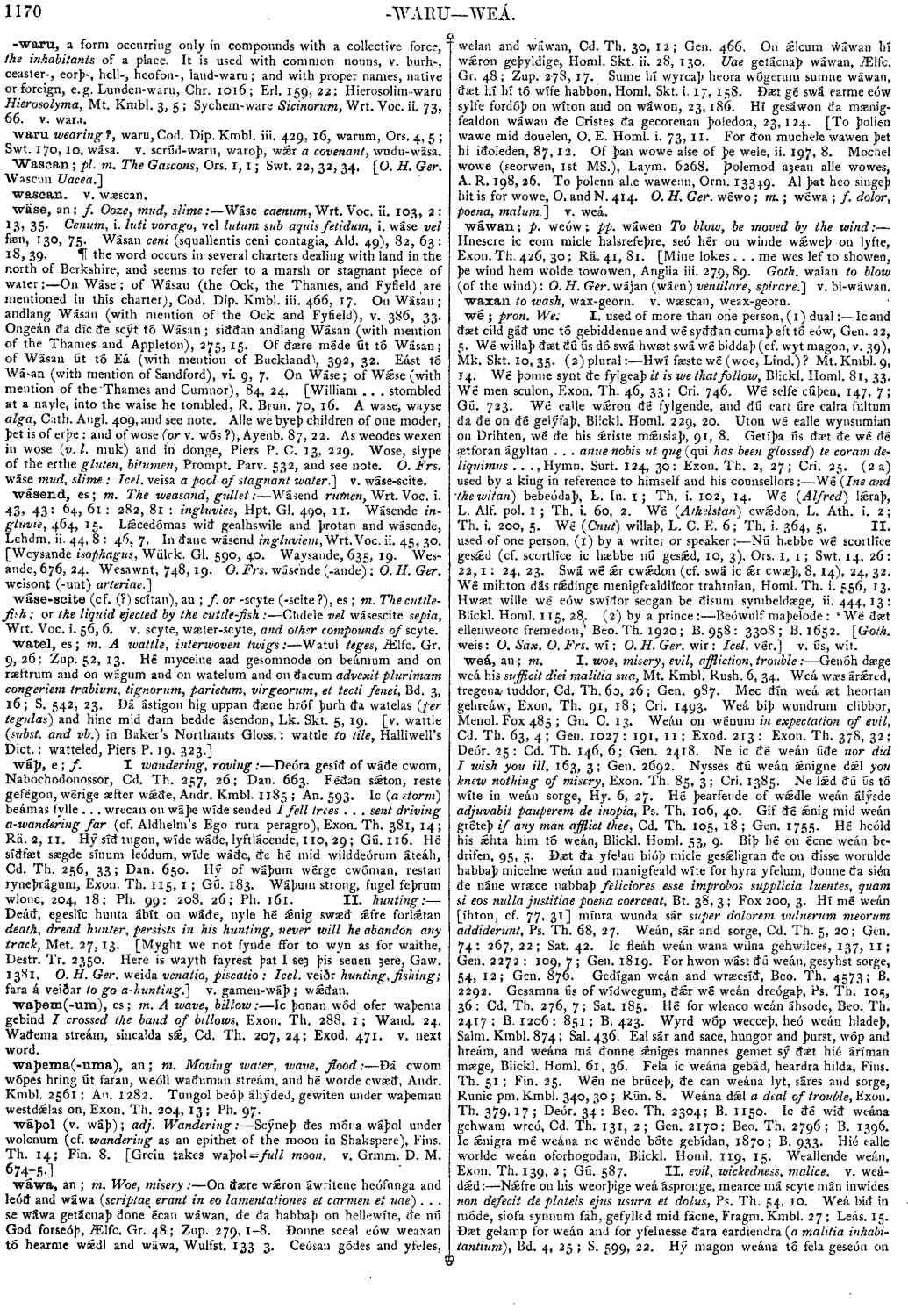wáþ
- noun [ feminine ]
-
Deóra gesíð of wáðe cwom,
- Nabochodonossor, Cd. Th. 257, 26; Dan. 663.
-
Féðan sǽton, reste gefégon, wérige æfter wǽðe,
- Andr. Kmbl. 1185 ; An. 593.
-
Ic (a storm) beámas fylle . . . wrecan on wáþe wide sended
I fell trees . . . sent driving a-wandering far
(cf. Aldhelm's Ego rura peragro),- Exon. Th. 381, 14; Rä. 2, 11.
-
Hý síð tugon, wíde wáðe, lyftlácende,
- 100, 29; Gú. 116.
-
Hé síðfæt sægde sínum leódum, wíde wáðe, ðe hé mid wilddeórum áteáh,
- Cd. Th. 256, 33 ; Dan. 650.
-
Hý of wáþum wérge cwóman, restan ryneþrágum,
- Exon. Th. 115, 1 ; Gú. 183.
-
Wáþum strong, fugel feþrum wlonc,
- 204, 18; Ph. 99: 208, 26; Ph. 161.
-
II. hunting :-- Deáð, egeslíc hunta ábít on wáðe, nyle hé ǽnig swæð ǽfre forlǽtan
death, dread hunter, persists in his hunting, never will he abandon any track,
- Met. 27, 13.
Bosworth, Joseph. “wáþ.” In An Anglo-Saxon Dictionary Online, edited by Thomas Northcote Toller, Christ Sean, and Ondřej Tichy. Prague: Faculty of Arts, Charles University, 2014. https://bosworthtoller.com/34719.
Checked: 0